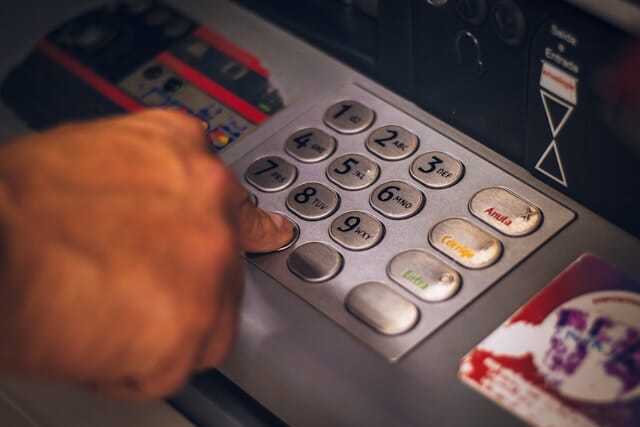Imagine scrolling through your social media feed in the bustling heart of Lagos, where the hum of generators and the scent of jollof rice mingle with the constant buzz of notifications on your phone. You're a hardworking Nigerian, perhaps a trader in Balogun Market or a tech-savvy entrepreneur in Yaba's Silicon Valley, when a message pops up promising quick riches. It starts innocently enough—a friendly chat that blossoms into what feels like a genuine connection, or an investment tip that seems too good to ignore. Before you know it, you've transferred funds, only to realize the harsh truth: you've been scammed online. The money vanishes into the either of cryptocurrency wallets or untraceable bank accounts, leaving you with a knot in your stomach and a drained savings account. This isn't just a story; it's the reality for thousands of Nigerians in 2025, where cybercrimes have surged amid economic pressures and digital proliferation.
In Nigeria, online scams have evolved into a sophisticated plague, exploiting the very tools meant to connect and empower us. The Economic and Financial Crimes Commission (EFCC) reported over 15,000 petitions in 2024 alone, with losses running into billions of naira, and 2025 shows no signs of abating. From romance frauds that prey on loneliness to crypto Ponzi schemes that lure with dreams of financial freedom, these deceptions are tailored to our cultural and economic vulnerabilities. But here's the lifeline: recovery is possible. Not guaranteed, but achievable through a structured, persistent approach that leverages Nigeria's improving legal frameworks, international collaborations, and emerging tech tools. This guide draws from real cases, EFCC protocols, and survivor testimonies to walk you through the exact process, step by step, without fluff or false hope. If you're reading this because it happened to you, know that you're not alone, and action now can turn despair into determination.
The digital boom in Nigeria, fueled by over 150 million internet users and platforms like WhatsApp, Instagram, and Telegram, has supercharged scam operations. Scammers, often operating from hidden enclaves in cities like Abuja or Port Harcourt, use deepfake videos and cloned websites to mimic legitimacy. Take the case of Ade, a 32-year-old engineer from Ibadan. In early 2025, he matched with a profile on a dating app claiming to be a UK-based oil executive. Weeks of flirty messages led to a "emergency" plea: she needed ₦500,000 wired for a visa snag to visit him. Ade sent it via a local bank transfer, only to discover the account belonged to a mule in Kano. His world crumbled, but six months later, through diligent reporting and forensic tracing, he recovered 60% of his funds. Ade's journey mirrors the path we'll explore, grounded in the reality that while scammers are cunning, the system's net is widening.
To grasp recovery, you must first understand the beast you're facing. Online scams in Nigeria in 2025 predominantly fall into a few insidious categories, each exploiting trust in unique ways. Romance scams, for instance, thrive on emotional bonds forged in virtual spaces. Scammers create elaborate personas charming professionals stranded abroad or widowed tycoons seeking companionship and nurture relationships over months. Once hooked, they fabricate crises: medical bills, travel delays, or investment opportunities tied to "our future together." Victims, often middle-aged professionals or retirees, send money via gift cards, wire transfers, or crypto, only to face ghosting. The FBI notes that romance frauds cost global victims over $1 billion in 2024, with Nigeria as a key hub due to its English-speaking youth and access to international payment gateways.
Then there are crypto scams, the glittering trap of 2025's bull market. Platforms like fake exchanges or Telegram investment clubs promise 200% returns on Bitcoin or stablecoins, drawing in novices amid Nigeria's naira volatility. A notorious example is the CBEX Ponzi, labeled by the EFCC in mid-2025, which defrauded thousands by paying early investors with new funds until collapse. Victims like Fatima, a teacher from Enugu, lost ₦2 million to such a scheme, watching her savings evaporate as the app vanished. Investment frauds extend beyond crypto to bogus forex trading bots or real estate flips advertised on Facebook, where scammers use urgency—"limited spots left!"—to bypass skepticism. Business email compromise (BEC) targets SMEs, spoofing executive emails to reroute payments, while advance-fee frauds, the classic "Nigerian prince" evolved, demand upfront fees for phantom inheritances.
These scams succeed because they mirror our aspirations. In a nation grappling with 30% inflation and youth unemployment hovering at 40%, the allure of quick wins is irresistible. Scammers leverage local knowledge—referencing Naija music hits or pidgin slang—to build rapport, then pivot to global tools like VPNs and mule accounts to launder funds. INTERPOL's Operation Serengeti 2.0 in August 2025 dismantled networks across 18 African countries, arresting 1,209 suspects and seizing $300 million in assets, underscoring the transnational scale. Yet, for the individual victim in Nigeria, the emotional toll is immediate: shame whispers that you should have known better, isolation creeps in as friends distance themselves, and financial ruin looms with bills unpaid and dreams deferred.
But recovery begins with recognition. The moment suspicion dawns perhaps a delayed payout or a mismatched story pause. Document everything: screenshots of chats, transaction receipts, wallet addresses, IP logs if possible. In Nigeria's humid afternoons, sitting at a cybercafe with a cold FanYogo, compile this into a digital folder. This evidence is your anchor. Next, alert your bank immediately; under CBN guidelines, they must investigate unauthorized transfers within 48 hours, potentially freezing linked accounts. For crypto losses, platforms like Binance Nigeria offer dispute resolution, though success varies.
The cornerstone of recovery in Nigeria is reporting to authorities, and the EFCC stands as your primary ally. Established in 2004 to combat 419 frauds, the EFCC has evolved into a cybercrime powerhouse, securing 4,111 convictions in 2024; the highest ever and recovering N364 billion in assets. In 2025, their Cybercrime Rapid Response Desk, launched in October 2024, operates 24/7, processing real-time tips via hotline (+234-8093322644) or email ([email protected]). To file, visit efcc.gov.ng, select "Petition," and submit a detailed narrative: who, what, when, where, how much, and all evidence. Include scammer handles, phone numbers, and any Nigerian bank details—crucial for tracing.
The EFCC's process unfolds methodically. Upon receipt, your petition enters their database, triaged by the Zonal Command nearest you—Lagos for southern cases, Abuja for national. Investigators, armed with forensic software, analyze blockchain trails for crypto scams or subpoena banks for fiat flows. In Ade's case, EFCC's collaboration with INTERPOL linked his scammer to a Ghana-Nigeria ring busted in Serengeti 2.0, leading to asset seizures. Expect follow-ups: interviews, affidavits, perhaps court appearances. Timelines vary—urgent cases resolve in weeks, complex ones in months—but 2025's digital upgrades, like AI-driven pattern recognition, have slashed backlogs by 30%. If your scam crosses borders, EFCC coordinates with the FBI's IC3 (ic3.gov) or UK's Action Fraud, amplifying reach.
Parallel to official channels, engage financial institutions. For bank transfers, the Nigeria Inter-Bank Settlement System (NIBSS) flags suspicious activities; contact your bank's fraud unit within hours of discovery. Western Union or MoneyGram scams, common in advance-fee ploys, allow refunds if reported pre-pickup—call their global line (+1-800-325-6000) with MTCN numbers. Crypto recovery demands blockchain forensics. Tools like Chainalysis, used by EFCC, trace tokens across wallets; free explorers like Etherscan reveal flows. In 2025, services like Cipher Rescue Chain boast 95% success rates by partnering with exchanges to freeze hot wallets. Puran Crypto Recovery, active in Nigeria, employs ex-EFCC analysts for $250,000+ reclamations, charging success fees only.
Legal avenues fortify your claim. Consult a lawyer versed in cyber laws—the Cybercrimes Act 2015 criminalizes fraud with up to 10 years imprisonment. File a suit in Magistrate Court for swift injunctions freezing assets, or escalate to High Court for damages. Pro bono aid from groups like the Nigerian Bar Association's pro bono wing or international NGOs like SCARS (Scam Victims Support) provides templates. In Fatima's recovery, a Lagos lawyer subpoenaed transaction logs, proving mule involvement and securing a court-ordered refund from the scammer's bank.
Amid the grind, emotional recovery is vital. Scams erode self-worth, triggering anxiety or depression in 70% of victims, per EFCC surveys. Join survivor forums on Reddit's r/ScamVictimsNigeria or WhatsApp groups via EFCC's Zero Tolerance Clubs. Therapy through apps like BetterHelp, adapted for Naija contexts, reframes guilt as scammer cunning. Community stories, like Chidi's from Kano who reclaimed ₦1.2 million via persistent EFCC follow-ups, inspire resilience.
As 2025 progresses, prevention sharpens recovery odds. Verify identities with reverse image searches on Google or TinEye scammers recycle photos. Use escrow for investments, avoiding direct wires. Educate via EFCC's Cybercrime Awareness campaigns, now in schools and markets. The tide turns: deportations of 99 foreign scammers in August 2025 signal crackdowns.
Recovery isn't linear; setbacks like uncooperative banks test resolve. Yet, persistence pays. Ade now mentors at a Yaba tech hub, turning pain into purpose. If you've been scammed, start today—report, trace, fight. Your funds aren't lost forever; they're waiting in the blockchain's immutable ledger or a frozen account. In Nigeria's vibrant spirit, where resilience is woven into our fabric, reclaiming what's yours is not just possible—it's a victory over the shadows.
Read More
- How to Protect Your Bank Apps from Hackers: 10 Essential Tips for Ultimate Security
- What Is a Wire Transfer? Your Complete Guide
- 4 Side Hustle Ideas to Earn $100,000 Even with a Busy Schedule
- Credit Card vs. Debit Card: Which One Should You Choose?
- 4 Things Small Businesses Should Consider In Today’s Economy

 Sent Money to the Wrong Account in Nigeria? Don't Panic! Here’s Your 2025 Action Plan to Recover Your Funds
Sent Money to the Wrong Account in Nigeria? Don't Panic! Here’s Your 2025 Action Plan to Recover Your Funds